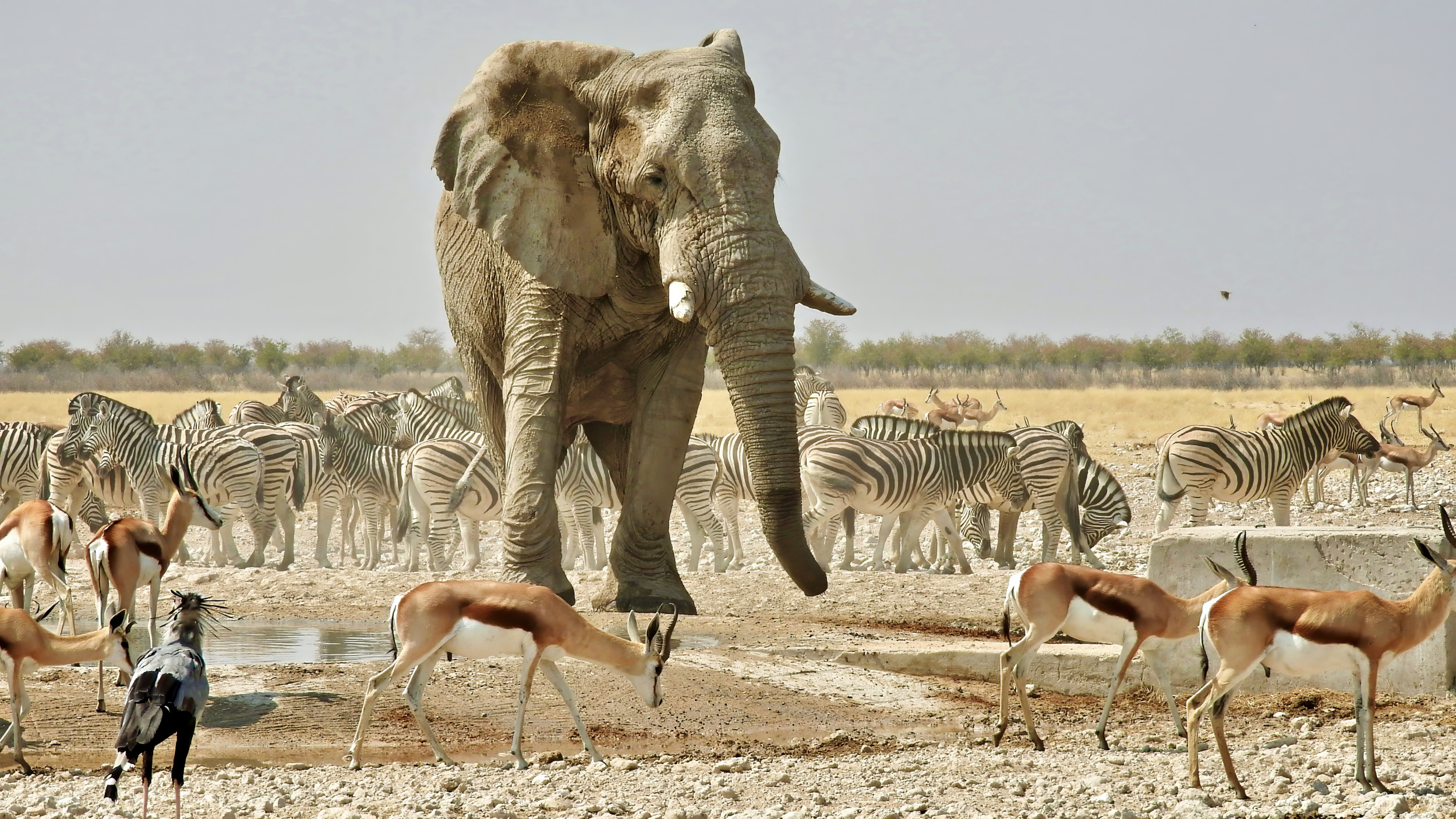While you might think that big cats are the kings of the savannah, it turns out that hooved animals are just as scared of elephants as predators like leopards—but we don’t know why.
When researchers played the calls of several animals to wildebeest, nyalas, and impalas—among others—in the Mbuluzi Game Reserve, Mlawula Nature Reserve and Hlane Royal National Park in Eswatini, they found that the prey animals reacted in fear just as strongly when they heard the elephants as then they heard leopards, according to a new paper in the journal Biology Letters.
“To measure the level of fear, we used new technology, we place out motion-triggered cameras that were connected to speakers in the African savanna,” Robert J. Fletcher, an affiliate professor of wildlife ecology and conservation at the University of Florida and co-author of the paper, told Newsweek.
When an ungulate—a hooved animal—walked in front of the camera, the camera would start to record a video of the animal. After approximately 20-30 seconds, the camera (which was linked to a speaker system) would then play a vocalization of either a leopard, elephant, or a control sound (a bird).
“The video would then document how the animal responded to the vocalization. We found that some species of ungulates tended to run when hearing an elephant or leopard sound, but not the control sound, including impala and blue wildebeest,” Fletcher said. “We also documented changes in vigilance behavior of the animal if they did not run. In this way, we determined if the animal had its head up, scouting the area (a common measure of vigilance). We found that ungulates were also more vigilant, particularly nyala.”
They found that the levels of vigilance of the ungulates were similar when they heard elephant sounds and leopard sounds. This response did differ between different species of ungulate: the running response to the elephant call was seen in 74 percent of impala running compared with only 39 percent of nyala.
This response may be because the animals are scared of the unknown, with both unfamiliar animal calls representing a threat. Alternatively, these reactions may be due to the ungulates having seen elephants act aggressively in the past, or even because elephants represent competition for food resources.
“These results are important as scientists have increasingly realized that predators can create ‘landscapes of fear’, which can have a wide range of consequences for species and ecosystems,” Fletcher said. “Our work suggests that elephants may have similar impacts. Elephants are large and often aggressive, such that we think that these fear effects we documented are driven by their dominant role in the community, even if they are not predators of other species.”
This study is hoped to help researchers know how best to manage animals in the national parks, by learning more about what scares them.
“Our results suggest that patterns like these may be driven by fear and call for a better understanding of how megaherbivores may alter the behavior of other species and its consequences for communities and ecosystems,” the authors wrote in the paper.
Do you have a tip on a science story that Newsweek should be covering? Do you have a question about elephants? Let us know via science@newsweek.com.

